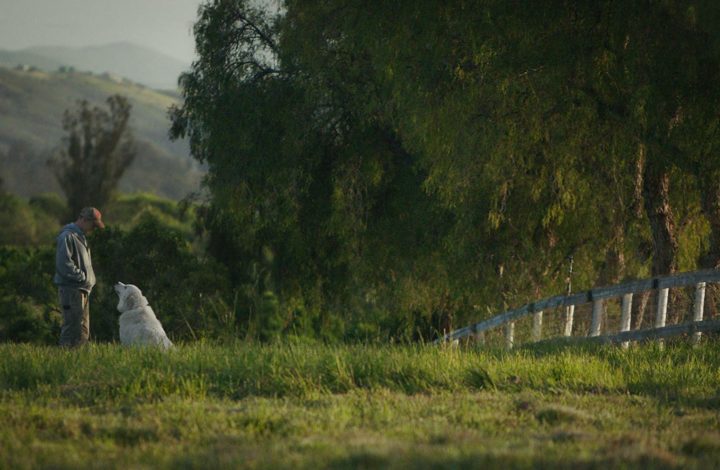
MPAA Rating: PG | Rating: ★★
Release year: 2019
Genre: Documentary Director: John Chester
There are some striking images of very cute animals in The Biggest Little Farm, a hagiographic home movie of one California couple’s pursuit of creating a new Garden of Eden. I guess that’s what happens when a cameraperson makes a film about themselves. Documentarian John Chester is the director, writer, producer, cinematographer, narrator, and star of The Biggest Little Farm. John and his wife, Molly, run Apricot Lane Farms just outside of Los Angeles, and their dream is to cultivate a sustainable farm. A food blogger and cookbook author, Molly says she’s inspired to create a real-life version of the sorts of idyllic all-encompassing farms one sees in children’s books. It’s a bonafide Old MacDonald dream come true.
But despite (or perhaps because of) the Chesters’ stated idealistic vision, I was genuinely annoyed by the project and the film’s narration right from the start. This vexation didn’t relent for the entire 91-minute running time. For all its focus on being organic and authentic, there is something distinctly artificial and performative about the film’s polished aesthetic and narrative. It’s like a Thomas Kinkade painting as brought to you by the Hallmark Channel, but with a West Coast granola vibe.
Despite the Chesters’ strong advocacy for examining and knowing one’s culture and ecosystem, the film is mostly absent of examining the larger ecosystem the Chesters are a part of, namely California and the USA. Apart from encroaching wildfires which tragically destroyed so many California homes, this is the Chesters’ wonderful self-made, self-edited world, and we’ve been given the honor of catching a glimpse of their vision. Indeed, The Biggest Little Farm is slick marketing, and the Chesters’ sell themselves well. Based on the huge amounts of renovations and equipment–not to mention people to work their farm for them–they must have found significant investors to afford such a project, and probably are hoping this film helps spread the gospel of Apricot Lane Farms.
In this, The Biggest Little Farm feels more like a well-made commercial than a work of art.* Chester is a capable and experienced cinematographer and editor, and some of the images of life on the farm are marvelous to behold. From a giant pig giving birth, to ducks snatching snails off fruit trees, to humming birds coming back to their tiny nest, the view of the natural here is often breathtaking. Yet what isn’t seen or explored are the people’s lives who have made the Chesters’ dreams come true. Apart from their eccentric farming mentor, Alan York, most of the other human beings are anonymous youthful interns or Hispanic workers, all present in the periphery to celebrate the Chesters’ dreams come true. (Have I mentioned their dreams coming true yet?) Significantly more time is spent on the Chesters’ dog, Todd, than on their human co-workers or community. In a late scene, there’s a moment where these unexplored souls literally stand around on a green hillside and cheer while John single-handedly helps a cow give birth. It’d be inspiring if it wasn’t so obnoxious.
Still, I am hesitant to confess my disappointment in the film, as I imagine many audiences will be enthralled by the Chesters’ California dreamland, worm poop and all (there’s an awful lot of enthusiastic discussion about the value of shit in this film). I imagine my exasperation lies not in the admittedly well-shot cinematography, but in the stilted script and narration, as well as the sense of self-reverence the Chesters have for their project. There’s always something a bit vain in allowing oneself to have a documentary be made about your life, creating a tension between subjectivity and objectivity; the best documentarians navigate this tension well, and do so cinematically, exploring the medium via the medium itself. But The Biggest Little Farm slips over into a blend of self-aggrandizement and self-help marketing; it feels like a farmer’s market cinematic version of something akin to Girl, Wash Your Face. Despite the noble goals, I’m just not buying this Instagram-filter version of Eden.
*This is not to say that commercials cannot also be artful, or even art. But I trust you know what I mean when I make this distinction here. There’s a difference between Terrence Malick’s The Tree of Life and his Google Pixel 3 ad.
IMDB Listing: https://www.imdb.com/title/tt8969332/